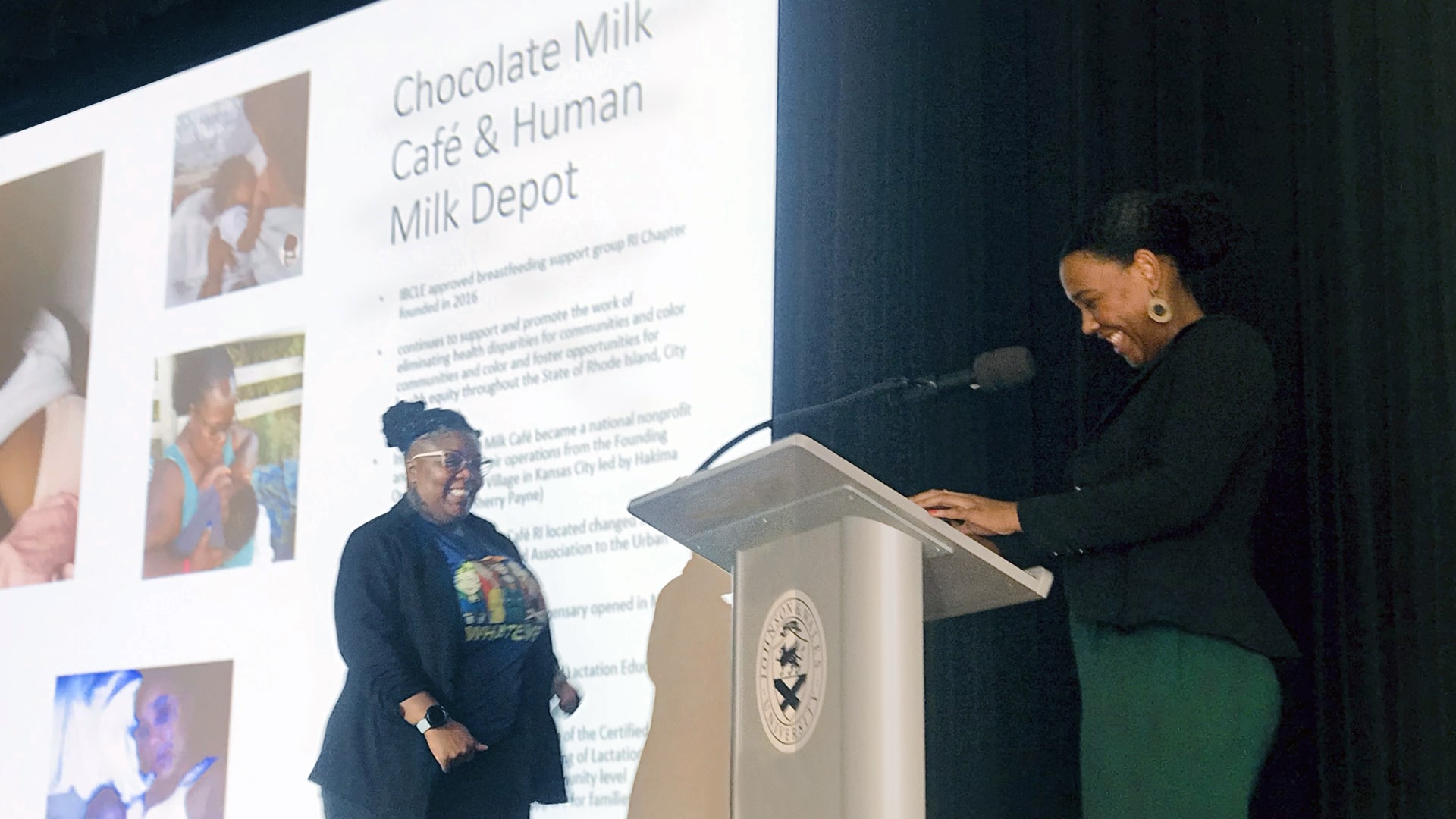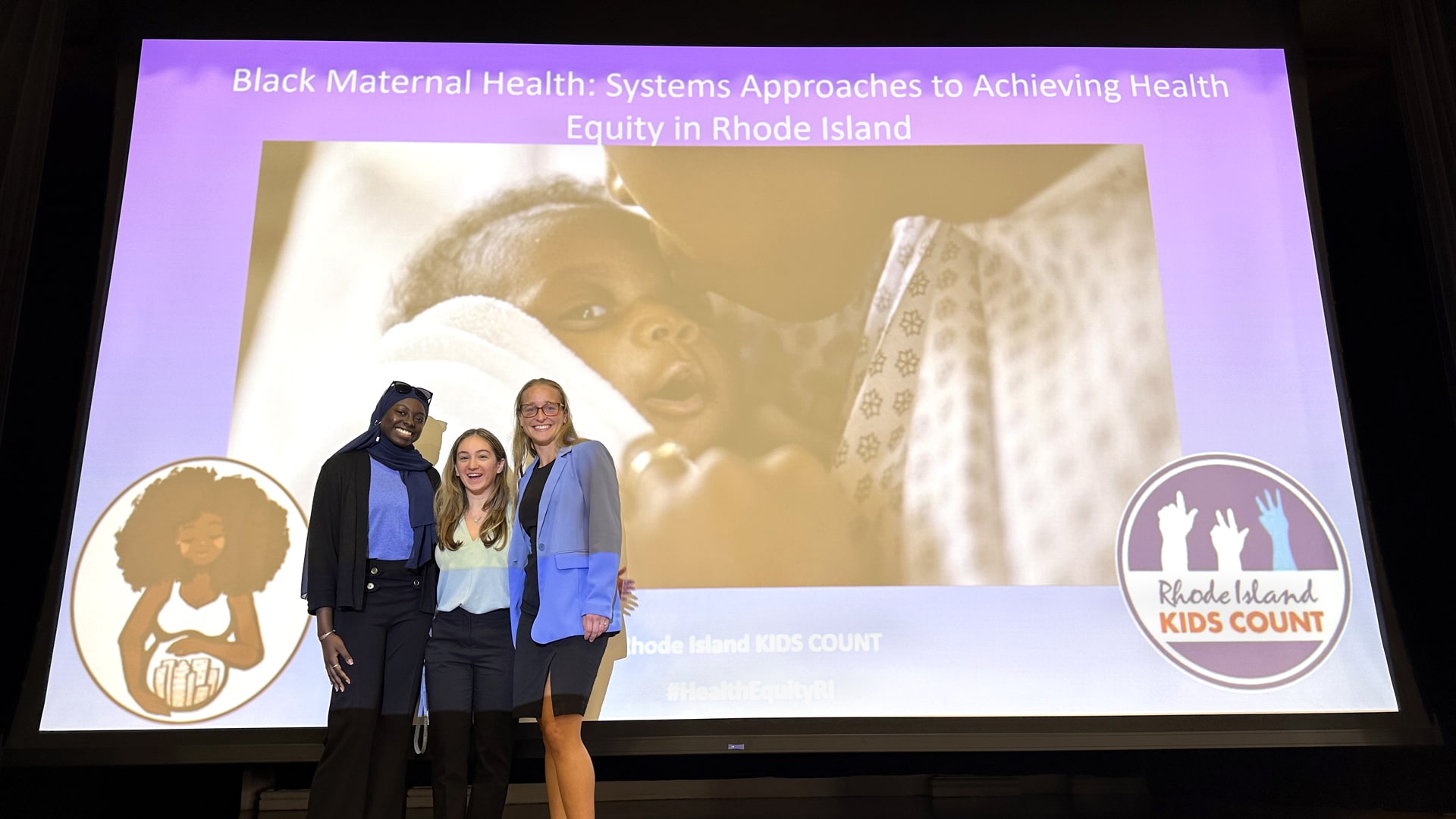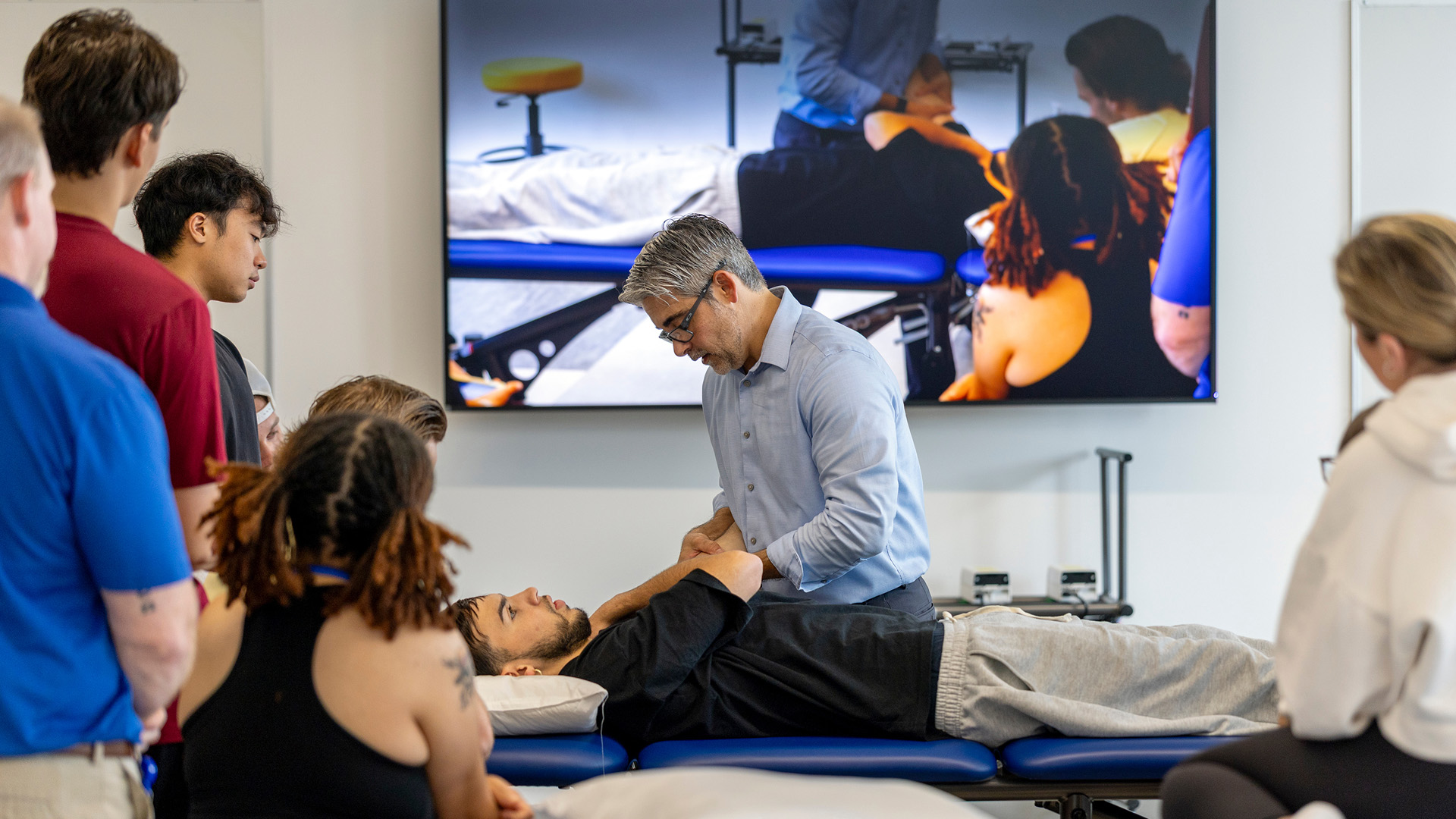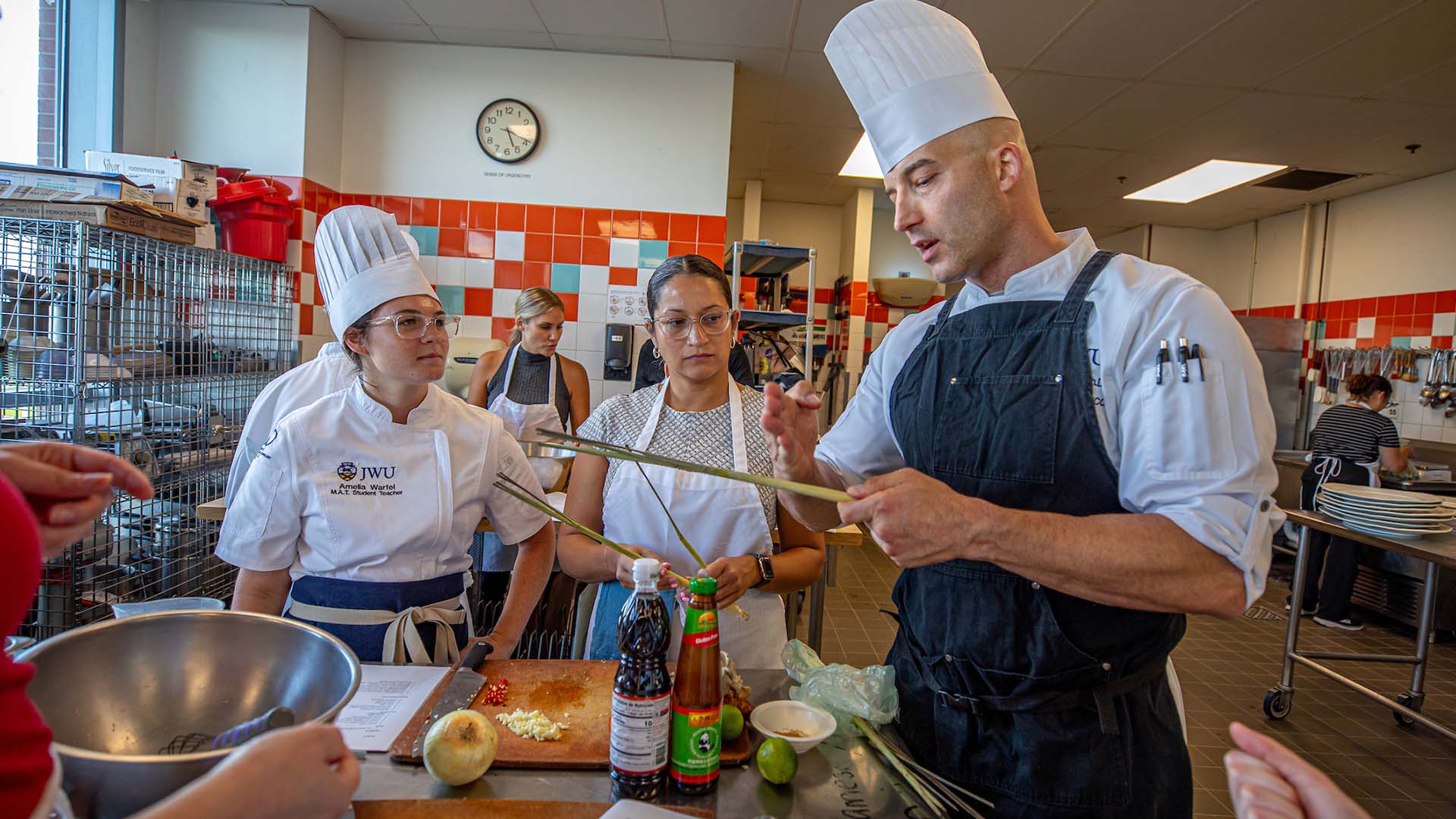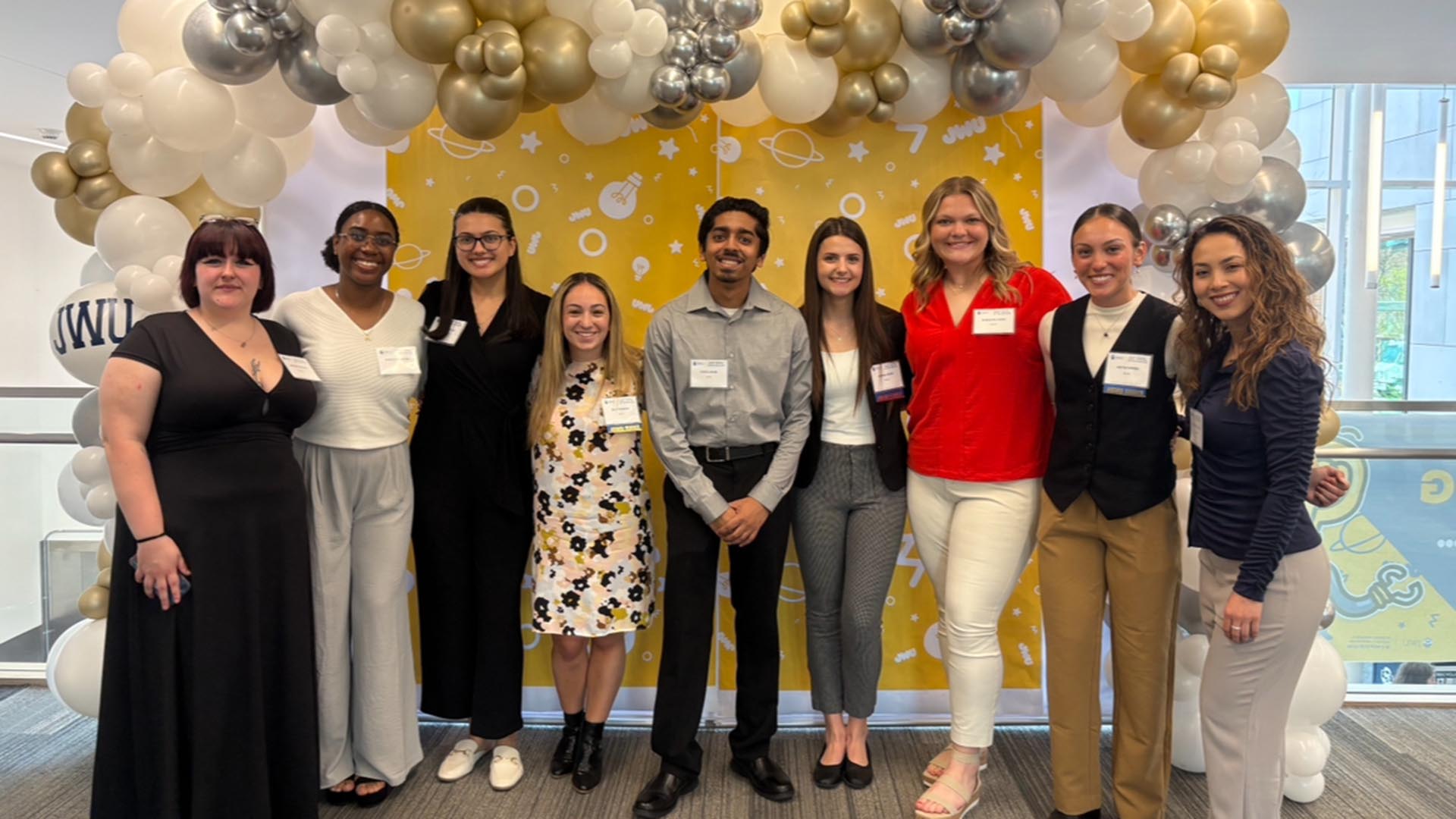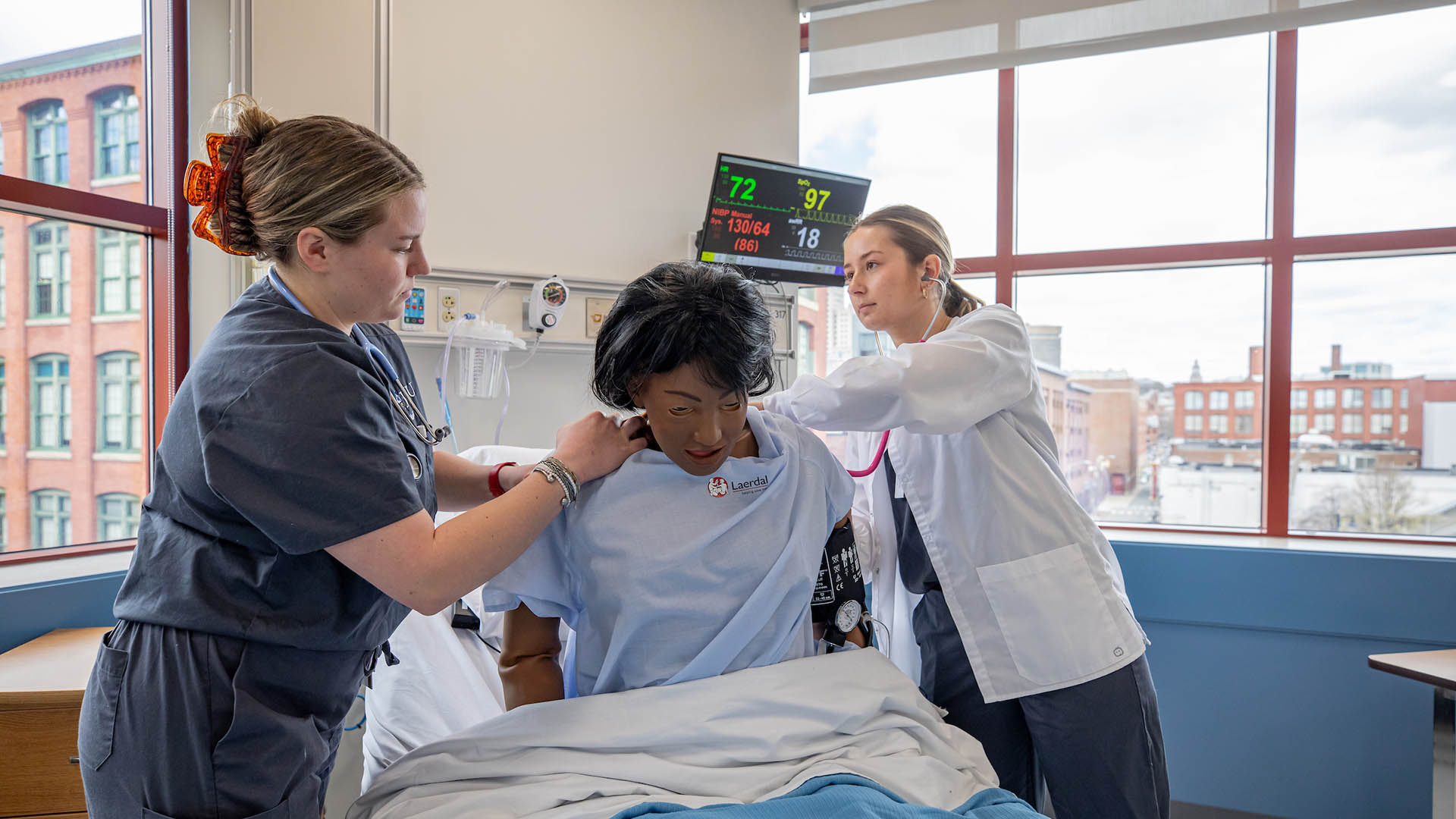How Community Action Can Improve Black Maternal Health Outcomes
The devastation of the Covid-19 pandemic illuminated the structural faultlines in our healthcare system, like the stark inequality of care. In 2021, the national mortality rate of Black women had risen to 71 deaths per 100,000 live births – in contrast with 41 deaths per 100,000 in 2018. And yet, according to the Centers for Disease Control & Prevention (CDC), 80% of maternal deaths are preventable. What can be done to create a more equitable system? And how can JWU students be part of that change?
Examining the Racial and Political Determinants of Black Maternal Health
Earlier this month, Kaitlyn Rabb, the policy analyst for Rhode Island KIDS Count, and Quatia “Q” Osorio, the executive director of the Urban Perinatal Education Center, visited JWU Providence to discuss the racial and political determinants influencing this data — and to discuss the positive strides being made in Rhode Island.
“The increasing diversity in Rhode Island ... emphasizes the need to support the ever-growing population of Rhode Island families of color.”
“The goal was to raise awareness of the disparities in Black maternal health in RI … in a way that combines the presentation of data with the lived experiences of community members,” noted Professor Jennifer Swanberg, who co-organized the talk with Associate Professor Samantha Rosenthal as part of the College of Health & Wellness’ Health Equity Lecture Series.
In 2020, 46% of births in Rhode Island were babies of color. For Rabb, “the increasing diversity in Rhode Island is really an asset and emphasizes the need to support the ever-growing population of Rhode Island families of color.”
Access to prenatal care throughout the early stages of pregnancy, noted Rabb, is crucial for identifying and treating health problems, as well as to “influence health behaviors that can affect fetal development and can help maternal health.” But there are all kinds of barriers that can make it difficult for BIPOC to access proper care, including lack of insurance, an inability to get time off of work, lack of childcare, lack of transportation, and so on.
And then there is the monolith of the American medical industrial system, which is rigid, bureaucratic, and lacking in empathy or cultural awareness at the most basic level.
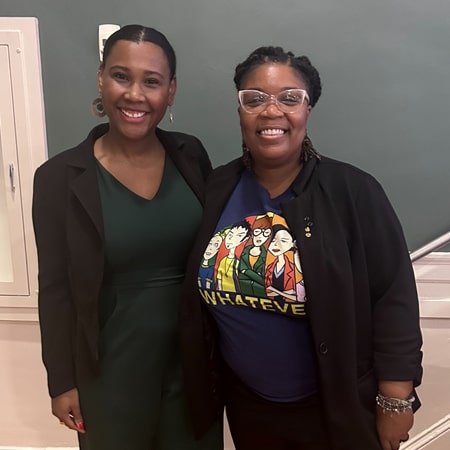 “There’s racism in the medical algorithms, in the medical devices, medical providers, implicit biases, and even in the medical education system in the U.S.,” noted Rabb. For example, “black women and birthing people tend to get inadequate treatment for their pain, due to misbelief of differences in pain thresholds; I’m thinking about misdiagnosis for chronic conditions and unequal access to treatment of these conditions.” With this in mind, it’s not surprising that there is widespread mistrust of the healthcare system among BIPOC communities.
“There’s racism in the medical algorithms, in the medical devices, medical providers, implicit biases, and even in the medical education system in the U.S.,” noted Rabb. For example, “black women and birthing people tend to get inadequate treatment for their pain, due to misbelief of differences in pain thresholds; I’m thinking about misdiagnosis for chronic conditions and unequal access to treatment of these conditions.” With this in mind, it’s not surprising that there is widespread mistrust of the healthcare system among BIPOC communities.
Expanding Community-Led Health Programs
In Rhode Island, there has been a massive grassroots effort to support and expand doula and community-led support; in 2021, the state passed the Quezada bill (2021-S 0484) making doula services eligible for reimbursement through private insurance and Medicaid programs.
“There is no question that this bill will save lives and be good for women of color in Rhode Island,” said Senator Ann Quezada, who sponsored the bill, “But it also makes strong economic sense. Women who use doulas require fewer expensive medical interventions during childbirth.”
As a certified community health worker, certified lactation counselor, certified childbirth educator, and postpartum doula, Osorio has been a passionate advocate for centering community-led initiatives to improve maternal outcomes. She’s trained more than 100 doulas and more than 50 certified lactation educators. In 2022, the Urban Perinatal Education Center opened its doors; the Rhode Island Birth Worker Co-op was also established.
These efforts have been community-led — a distinction that Osorio emphasized to the JWU audience. “Community-based is not always community-led. And community-led is always community-based,” she explained.
Working with a community requires making authentic connections and letting go of hierarchical, power-based roles. “Capitalistic society is harmful and oppressive,” Osorio continued. “Enterprise looks to build out networks and can create authenticity and equity across the board — built-in socioeconomic independence and reliance so that they can also lean into the community for greatness.” When volunteering for any organization that touts its community connections, she recommended that any Public Health or Health Science students look at the chain of command — and assess whether or not the organization is giving authority to the community.
Another positive step has been extending postpartum coverage from 60 days to an entire year. “A lot of states have followed, and it’s almost a national norm now,” noted Rabb. “Thinking about doula reimbursement, [Rhode Island] is the the gold standard, in my opinion.”
How JWU Students Can Get Involved
During the question-and-answer session, Public Health and Health Science students asked for advice on how to volunteer or get started in doula work. Osorio pointed out that community work requires you to show up as your best self: “Be authentic. Be honest. Be supportive.”
Rhode Island’s small size gives it a clear advantage when expanding community networks and scaling up successes; both Swanberg and Rosenthal encourage their students to participate in that wave. “Many students expressed wanting to get involved in improving the maternal health conditions for women of color in Rhode Island and followed up with Quatia immediately following the event,” said Swanberg.
“Community-based is not always community-led. And community-led is always community-based.”
Helping JWU students understand what is at stake can motivate them to make a difference. While it can be hard to listen to stories of persistent trauma and the disproportionate harm that BIPOC women endure during pregnancy and motherhood, Rosenthal hopes that students turn their horror into action: “Many in the room were young people on their way to becoming healthcare providers and public health professionals. This powerful lecture will stay with them when they are in the exam rooms with patients who deserve better care.”
EXPLORE PUBLIC HEALTH EXPLORE HEALTH SCIENCE
TOP, BELOW AND INSET: KAITLYN RABB, THE POLICY ANALYST FOR RHODE ISLAND KIDS COUNT, AND QUATIA “Q” OSORIO, THE EXECUTIVE DIRECTOR OF THE URBAN PERINATAL EDUCATION CENTER, VISITED JWU PROVIDENCE TO DISCUSS THE RACIAL AND POLITICAL DETERMINANTS INFLUENCING BLACK MATERNAL HEALTH IN RHODE ISLAND. BOTTOM: THE HEALTH EQUITY CENTER FELLOWS WITH THE CENTER FOR STUDENT RESEARCH & INTERDISCPILINARY COLLABORATION (LEFT-RIGHT): AISHA DRAMMEH, LILLY OLIVEIRA AND MARGARET JOHNSON. (BANNER, INSET AND BOTTOM PHOTO COURTESY OF THE COLLEGE OF HEALTH & WELLNESS.)
